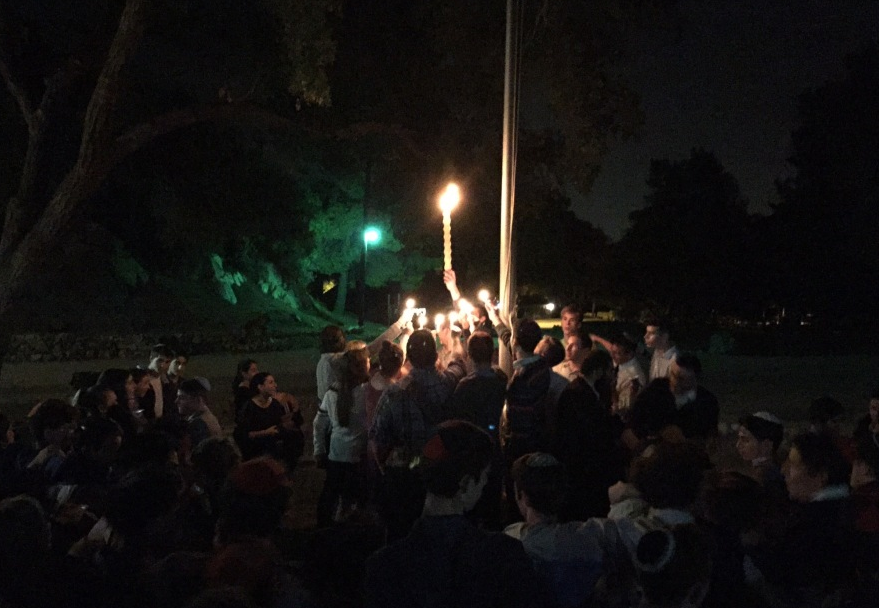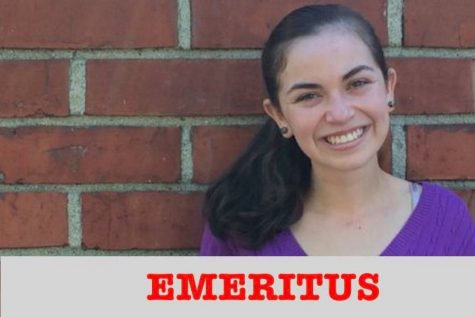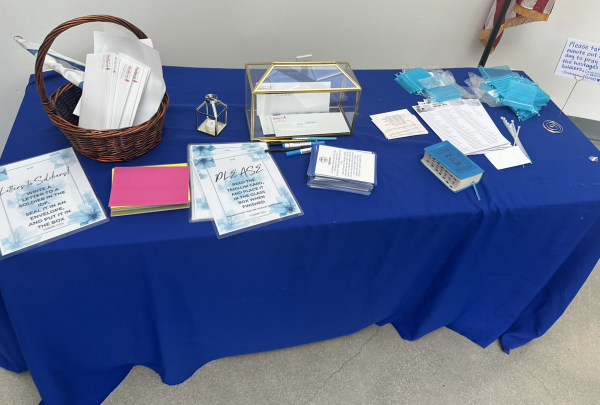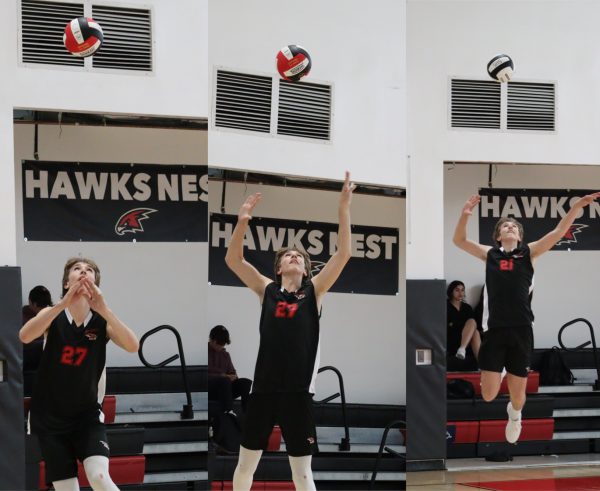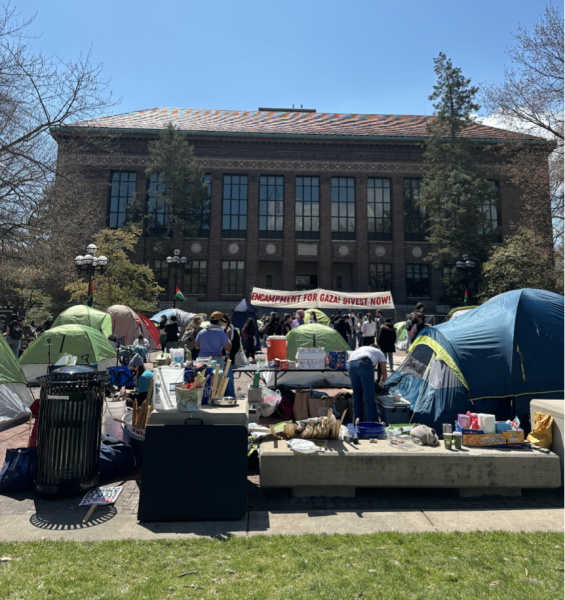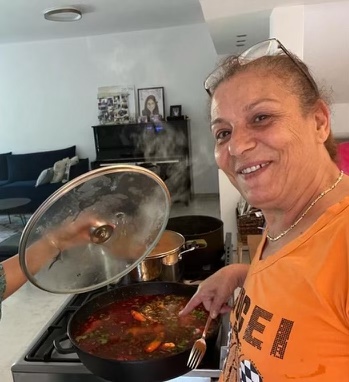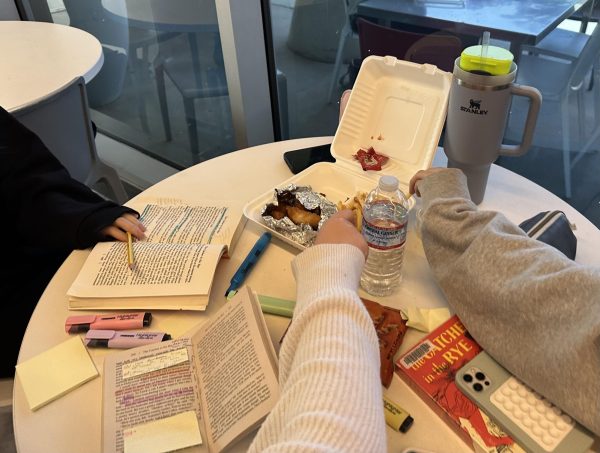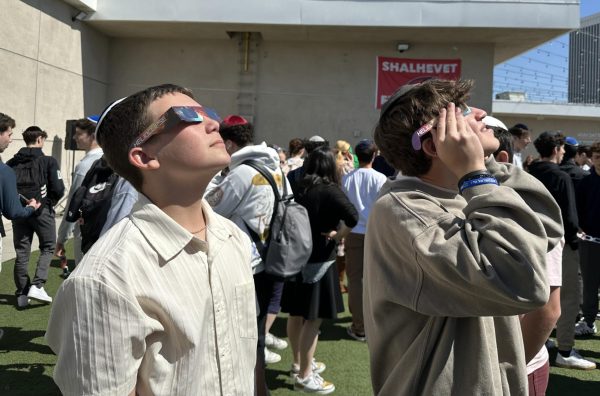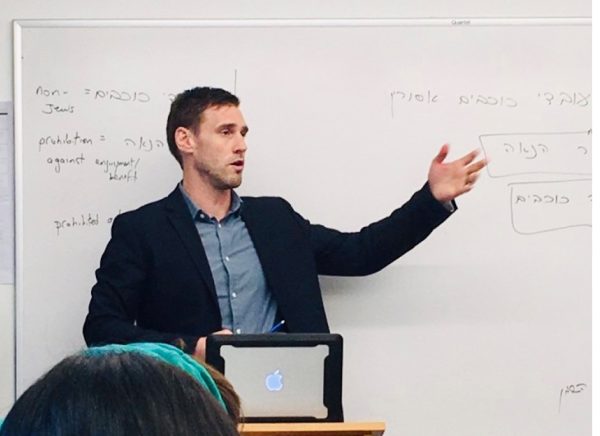OPINION: On schoolwide Shabbaton, vulnerability ruled and should have kept its crown
FLAME: Seniors held candles during Havdalah at the school Shabbaton Nov. 14 at Camp Max Strauss in Glendale.
December 14, 2014
On a recent Friday morning, about 140 of us sat on the gym floor in the JCC and watched a Ted Talk video about vulnerability and connection. We were about to leave for the schoolwide Shabbaton at Camp Max Strauss, and were told those would be the twin themes of the weekend.
Vulnerability, we learned from the speaker, Brene Brown, is actually not a sign of weakness, but a sign of strength, and is usually admired by those who observe it. By allowing ourselves to be vulnerable, we make it possible to connect with people we have never connected to before. Judaic Studies teacher Ruthie Skaist followed the presentation with a goal and a request: throughout the trip, no one should judge or use sarcasm.
The Judaic faculty attending the Shabbaton designed two sessions for the group, both centered on the idea that vulnerability is not weakness. One of these sessions was led by the seniors on Shabbat afternoon.
In groups divided by grade and gender, seniors asked the younger students to each share two things that would help others understand them better. Few of the seniors or faculty thought it would work. But it turned out to be more successful than anyone had imagined.
Ten minutes into the activity, students in all six of the groups were crying. In some groups, such as the sophomore girls’, there was not a dry eye in the room. Students were sharing their deepest problems and secrets with one another, and nobody was judging.
When the Judaic faculty realized how emotional the sessions were becoming, they panicked, it seemed. Before any group had a chance to finish, teachers pulled the seniors aside and told them to stop the sharing.
“The session was almost too successful in the sense that students started sharing in a very emotionally vulnerable manner that we hadn’t fully anticipated,” Rabbi Segal said later in an interview with the Boiling Point. “As an educator and someone who has worked for many years with students, I recognized that it was not appropriate for that kind of emotionally intense experience to be managed completely by 12th graders alone.”
The Boiling Point understands this. The faculty thought that since the seniors had no formal training, it wasn’t educationally responsible to let them continue with emotions so strong. Rabbi Segal sent an e-mail to parents on Sunday describing what had happened.
But while we respect the decision to end the sessions, we think it was wrong.
Many of the students were crying, but not because they were upset or unable to cope. It was due to the power of the feelings of closeness, connection, friendship and mutual understanding in the room.
The younger students felt comfortable opening up to the seniors, and were only crying because it was the first time they had been so vulnerable. Interrupting the sessions did not stop the tears, but instead left some of the younger-classmen without having gotten a turn to speak.
Even though the seniors will never be able to recreate that exact mood, it would be very helpful for the school to hold follow-up sessions every two months for the rest of this year, to finish what was started and to create a connection that will last.
This was the stated goal of the Shabbaton, and the school should build on its success.

